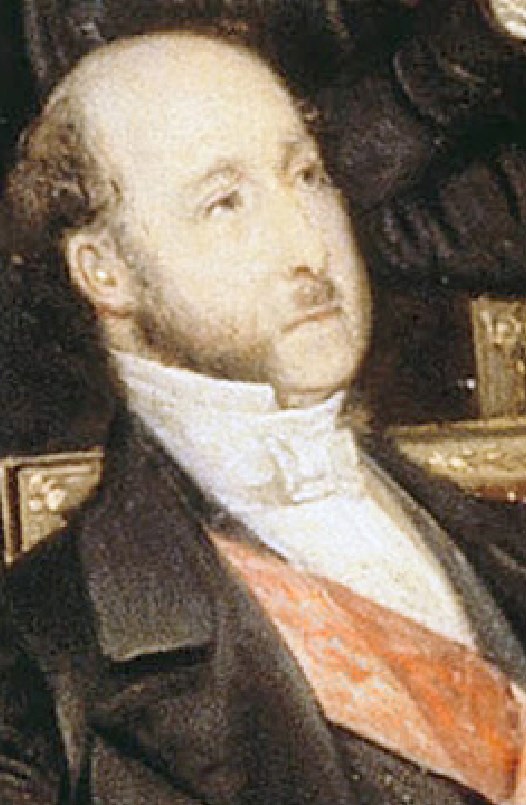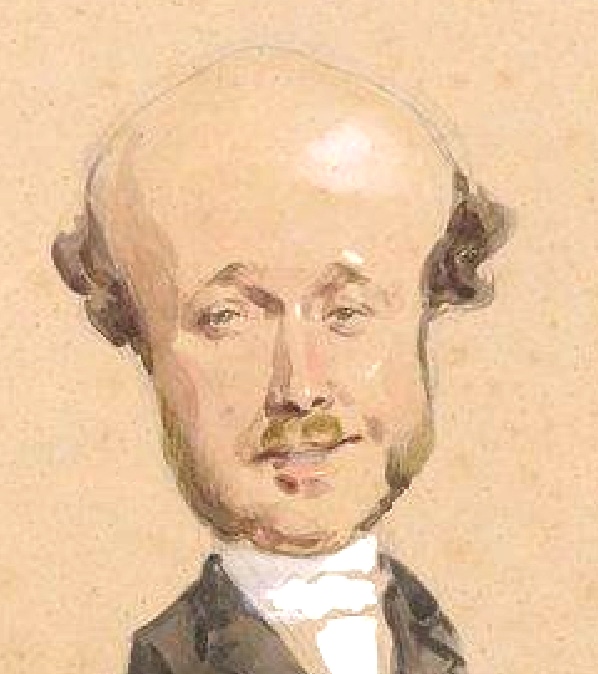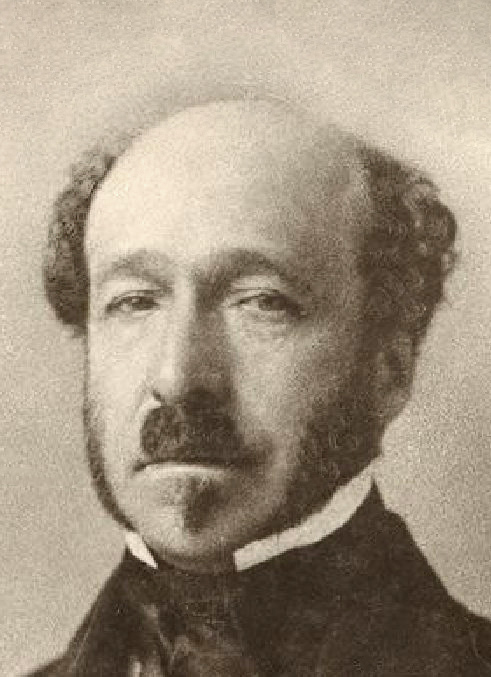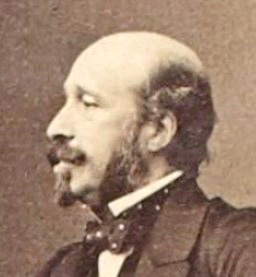Count Auguste de Morny (1811 – 1865), politician, investor
1st image: Biard; 2nd: caricature by Eugène Giraud drawn 1851/1852 at Nieuwerkerke's salon; 3rd: Photo atelier Nadar (late 1850s); 4th: Photo atelier Nadar (1860s). (Clip from film ' Henri Dunant' (2006)
Auguste de Morny is placed at the center of this painting, acknowledging his immense influence. Registered at birth as “Demorny”, this illegitimate son of Hortense de Beauharnais, queen of Holland, and Count de Flahaut (an illegitimate son of Prince Talleyrand) he famously remarked:
‘In my lineage, we have been bastards from mother to son for three generations. I am the great-grandson of a king, grandson of a bishop, son of a queen, and brother of an emperor.’
He sought recognition of his lineage throughout his life, and upgraded his name to Count de Morny. Assisted by his mistress Fanny Le Hon-Mosselman, daughter of a wealthy Belgian banker, he became a successful businessman. He managed her father’s zinc mines, a beet sugar factory, and invested in railroads, telegraph lines, and the stock market.
De Morny only entered politics to expand his business ventures, using insider trading. The 1848 revolution ruined him, but he recovered with Le Hon's money. In December 1851, he played a key role, along with Fould17 and Baroche61, to make his half-brother, Louis-Napoleon, the emperor of France.
Historian Claude Dufresne named de Morny ‘King of the Second Empire.’ His influence was widespread in Paris: people emulated his gestures and speech. If investors were told ‘Morny is in’ they expected profits.
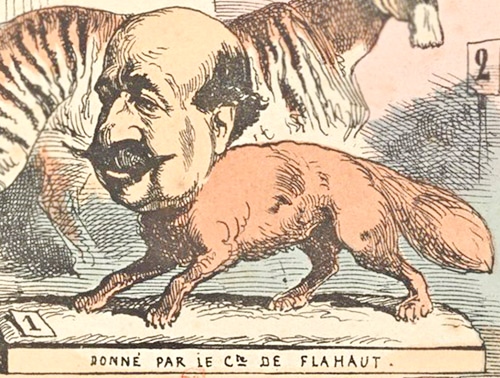
De Morny continued his profitable mix of business and politics, presiding over the Legislative Body since 1854, attending the Opera, and engaging in intimate liaisons with actresses Rachel Félix81 and Alice Ozy (also the emperor’s favorites, hence their tensions), but he also sponsored the boarding school for Sarah, the young daughter of Dutch-Jewish courtesan Judith Bernard.
Multiple mistresses, and his marriage with Sophie Troubetskoy in 1857 during his assignment as ambassador in St. Petersburg, resulted in a definitive break with Le Hon, who demanded repayment of her loans.
From Russia, de Morny denounced her claim, but the emperor settled the case in her favor for a vast sum, to avoid scandal. Despite personal tensions, the emperor approved his elevation to Duke in 1862.
De Morny had a hippodrome built in Deauville (see Video Visites privées), collected paintings, and wrote music and lyrics for vaudeville plays under the pseudonym M. de St. Remy, collaborating with Offenbach and with Halévy19.
He coped with all these activities with medication from his doctor Oliffe. It likely contained mercury, antimony, and/or arsenic, leading to his early death on March 10, 1865.
In what would be his final years, de Morny prepared the emperor for a return to democratic governance.
After de Morny’s early death, the emperor was leading his foreign policy from uncertainty to uncertainty, starting the war with Prussia in 1870 that ended the Second Empire.
